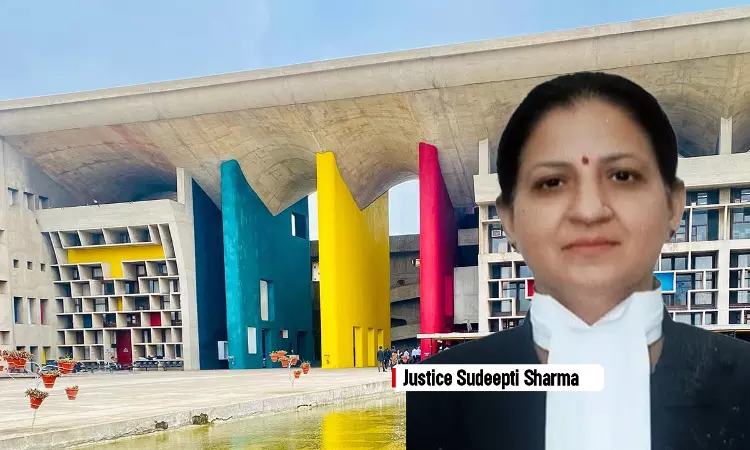- Home
- /
- High Courts
- /
- Punjab and Haryana High Court
- /
- No Condonation For Bureaucratic...
No Condonation For Bureaucratic Lapses: Punjab & Haryana High Court Rejects 992-Day Delay In Filing Appeal By State
Aiman J. Chishti
6 Oct 2025 8:40 PM IST
Reaffirming that the law of limitation cannot be defeated under the guise of advancing substantial justice, the Punjab and Haryana High Court dismissed the State's application seeking condonation of a 992-day delay in filing an appeal.Justice Sudeepti Sharma said, "it is by now a well-settled principle that while Courts lean in favour of advancing substantial justice, they cannot do so...
Reaffirming that the law of limitation cannot be defeated under the guise of advancing substantial justice, the Punjab and Haryana High Court dismissed the State's application seeking condonation of a 992-day delay in filing an appeal.
Justice Sudeepti Sharma said, "it is by now a well-settled principle that while Courts lean in favour of advancing substantial justice, they cannot do so by defeating the law of limitation or by causing serious prejudice to the opposite party. The law of limitation, being founded on public policy, admits of no exception in favour of repeated bureaucratic lapses or casual indifference. As the applicant–State has failed to make out sufficient cause for condonation, this Court has no hesitation in holding that the application is devoid of merit."
The plea was filed by Punjab's Consumer Affairs Department, seeking to condone delay of 992 days in filing the appeal.
After hearing the submissions, the Court noted that delay is not to be condoned as a matter of generosity or benevolence; the pursuit of substantial justice cannot come at the cost of prejudice to the opposite party.
The Limitation Act, 1963 seeks to ensure that litigants approach the Court within a reasonable period and do not sleep over their rights. Though Section 5 of the Limitation Act empowers the Court to condone delay upon sufficient cause being shown, such discretion is neither automatic nor to be exercised as a matter of course, it added.
Justice Sharma highlighted that the law of limitation, being founded upon public policy, is anchored in the well-recognized maxim 'reipublicae ut sit finis litium' that it is in the larger public interest that there should be an end to litigation and the object is to ensure finality in legal proceedings, and public interest is undoubtedly better served by timely governmental action than by condoning repeated lapses on account of avoidable delays.
Adding that "The law requires that the Courts exercise circumspection in such matters, apply their judicial mind carefully, and be slow in condoning delay when the reasons offered reflect bureaucratic apathy," the Court said only in exceptional circumstances, where the explanation is found to be genuine, reflective of reasonable diligence and promptitude, and free from gross negligence, deliberate inaction, want of bona fides, or casual indifference, can such delay be condoned.
Reliance was placed on Union of India v. Jahangir Byramji Jeejeebhoy wherein the Apex Court expressing displeasure with the approach adopted by the Union of India for seeking condonation of more than 12 years of delay in filing the restoration suit, the Supreme Court on Wednesday (April 3) refused to condone the delay stating that it would be a mockery of justice if the delay gets condoned, as it would result in pushing the decree-holder to undergo the lengthy litigation process again.
Examining the submissions of the State, the Court opined that, even granting the applicant-State every latitude, the explanation tendered neither discloses “sufficient cause” nor satisfactorily accounts for the entirety of the delay, as mandated by the aforesaid precedents.
"Faced with such an extraordinary delay, mere vague assertions or generalized difficulties fall far short of meeting the statutory threshold for condonation," the Court remarked.
In the light of the above, the plea was dismissed.
Title: THE PRINCIPAL SECRETARY, FOOD CIVIL SUPPLIES AND CONSUMER AFFAIRS DEPARTMENT, PUNJAB AND ORS v. VARINDER KUMAR JAIN
Citation: 2025 LiveLaw (PH) 399



